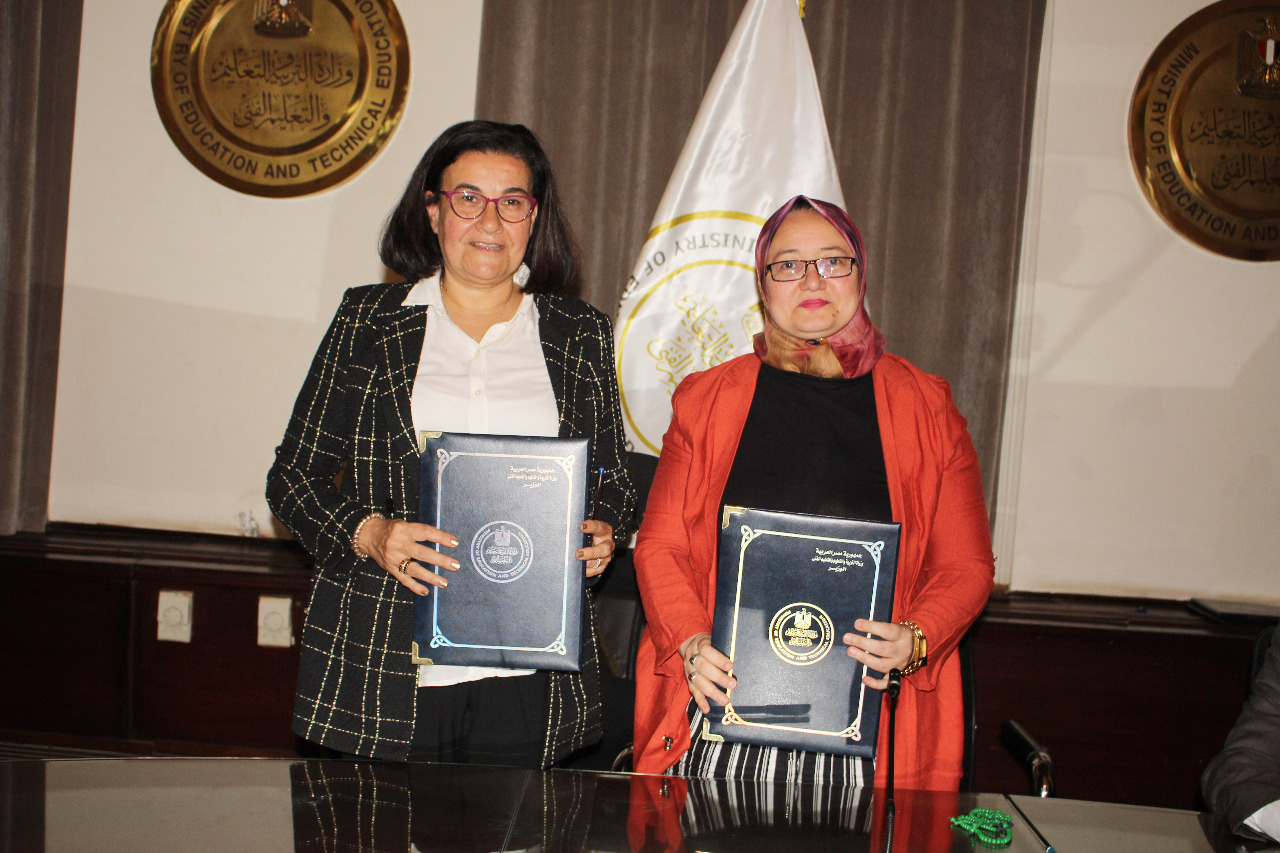Education signs a cooperation protocol with Baseera Foundation to screen 50,000 students and educate teachers about early detection of eye diseases and ways to prevent them

The Ministry of Education and Technical Education and the Baseera Foundation for People with Visual Needs signed a joint cooperation protocol to screen 50,000 students and educate teachers about early detection of eye diseases and ways to prevent them.
The protocol was signed by Dr. Hala Abdel Salam, Head of the Central Department of Special Education in the Ministry, on behalf of Dr. Tarek Shawky, Minister of Education and Technical Education, and Doaa Mabrouk, member of the National Council for Persons with Disabilities and Executive Director of the Baseera Foundation.
The protocol aims to organize a series of convoys specialized in eye diseases that conduct medical surveys on eye diseases, early detection of them and providing the necessary medical and treatment services, benefiting 50,000 school students in a number of governorates.
In her speech during the signing of the protocol, Dr. Hala Abdel Salam confirmed that the ministry is implementing the directives of President Abdel Fattah El-Sisi in overcoming all obstacles in front of our children with different disabilities to obtain their right to an inclusive education as one of the pillars of building the new republic, noting that the action strategy adopted by Dr. Tarek Shawky, Minister of Education and Technical Education, stated that children with different disabilities obtain their right to an inclusive education in accordance with the principle of equality and equal opportunities based on a number of determinants, including that limiting disability, access and educational inclusion is one of the objectives of Egypt’s 2030 strategy.
Dr. Hala Abdel Salam explained that this protocol includes conducting a comprehensive medical survey on eye diseases for 50,000 school students in the governorates of Assiut, Luxor, Aswan, Suez, and New Valley, by organizing medical convoys that provide signature services for detection and diagnosis of the need for glasses. Medical treatment, making glasses and delivering them to eligible students, as well as providing the necessary drug treatment, diagnosing and performing eye operations completely free of charge, as well as working to improve the awareness of specialist teachers and health visitors in schools on how to detect and prevent.
For her part, Doaa Mabrouk emphasized that Baseera Foundation’s vision revolves around making a qualitative shift in the lives of people with visual needs through early detection to reduce disability and support the comprehensive integration of people with visual needs in public and private education schools, and provide them with life skills to make them independent and productive individuals in their community.
She added that Baseera's incentives for signing the cooperation protocol with the Ministry of Education stemmed from the Foundation's findings in study and research that 80% of the causes leading to various visual disabilities can be avoided through early detection and early medical intervention, and that from the experiences of Baseera Foundation from previous surveys, it was proved that there are A percentage of 12% to 15% need glasses and a similar percentage need treatment, and 7 per thousand need eye surgeries, and 3 per thousand remain visually impaired in the classrooms of general education schools, which affects their educational attainment, which is one of the reasons for dropping out of education.
She pointed out that Baseera Foundation will provide a complementary awareness program on the details of how to deal with students in the classroom, and provide appropriate educational resources and aids and learning aids for people with visual disabilities in the resource room of the school where there is a visually impaired student.
